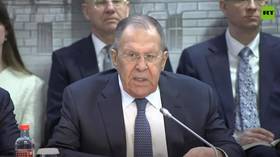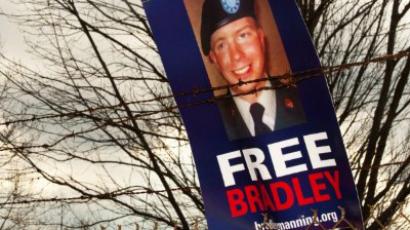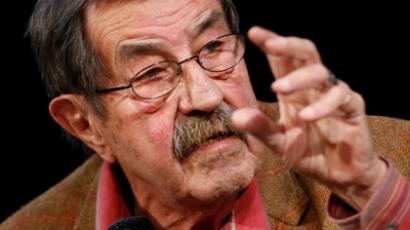Nobel Prize: A tale of ignoble peace laureates
One man introduced indefinite detention and expanded the deadly global drone war. Another was the architect of the deliberate mass killing of civilian populations in Indochina. What do they have in common? Both are Nobel Peace laureates.
Gandhi never got one. Al Gore did. In one of the stranger ironies befitting of both Kafka and Orwell, sometimes the makers of permanent war are awarded for bringing temporary peace. Sometimes they don’t even get that far.With the winner of the 2012 Nobel Prize set to be announced in Oslo, Norway on Friday, the shadow of Barack Obama still looms large. In 2009, the committee awarded the current US president "for his extraordinary efforts to strengthen international diplomacy and cooperation between peoples." Nominations for the award are due by February 1, meaning Obama had served as America's executive for less than two weeks when the Norwegian Nobel Committee selected him. Perhaps it was wishful thinking. Since then, Obama signed the National Defense Authorization Act into law, making it legal to indefinitely detain US citizens. There are also the deadly drone wars in Yemen and Pakistan, the war waged in Libya, the Afghan surge and a secret "kill list” revealed this year by The New York Times, which grants a select few American officials the option to mark perceived national security threats – foreign citizens or otherwise – for assassination. Ironic, yes, but they never could have known. Even attempts for the committee to play it more conservatively have backfired. Last year, the committee decided to recognize three women for their role in a non-violent struggle for the safety of women and for women's rights to full participation in peace-building work. The three women included a Yemeni activist, Liberian President Johnson Sirleaf and her fellow citizen and civil society activist Leymah Gbowee.On Wednesday, Gbowee publically lambasted Sirleaf for failing to fight corruption and nepotism in Liberia.Liberia’s Truth and Reconciliation Commission even put Sirleaf on a list of 52 people who should be sanctioned for committing war crimes for supporting former Liberian warlord and President Charles Taylor in the late 1980s.Taylor, who infamously campaigned on the slogan "He killed my ma, he killed my pa, but I will vote for him” during the 1997 general election that followed a war that killed over 200,000 people, fortunately did not win a Nobel Prize.The post-Obama rehabilitation of the prize might not have gone as smoothly as hoped, but the prize’s history is replete with examples of questionable choices, to say the least.Chief among them was the 1973 prize awarded to North Vietnamese leader Le Duc Tho and Henry Kissinger. Tho rejected the prize, telling Kissinger that peace had not been restored in South Vietnam. Kissinger for his part accepted the prize “with humility.” Before, during and after his acceptance of the prize, Kissinger would be implicated in assassination, war crimes and the slaughter of civilians in a large swath of countries: East Timor, Pakistan, Greece, Cyprus, Chile, Argentina, Cambodia, Laos and Vietnam. This year’s winner(s) will be drawn from 231 different nominations, 188 of whom are individuals, while the rest are organizations.Among them are Russia’s own radio station Ekho Moskvy and the Memorial human rights center.Also on the list is Myanmar's President Thein Sein, who might be recognized for his role in moderating Myanmar’s notoriously repressive military regime. But even Sein has been implicated in confiscating land from paddy farmers which was later sold to an officer from the effectively paramilitary United Wa State Arm, who then used the land for the production of amphetamines.If Sein were to win, it might cause a scandal. But it certainly wouldn’t be the biggest shock in the prize's hundred-plus years.














